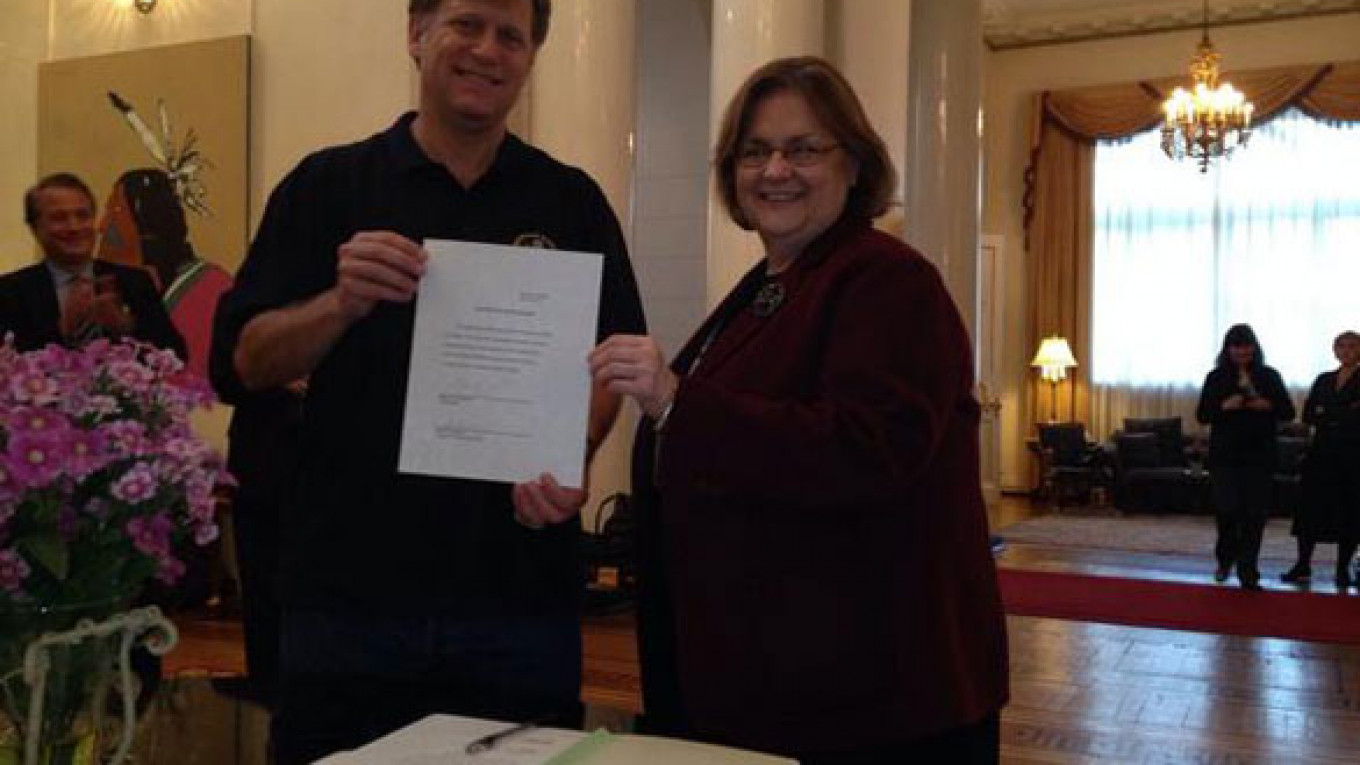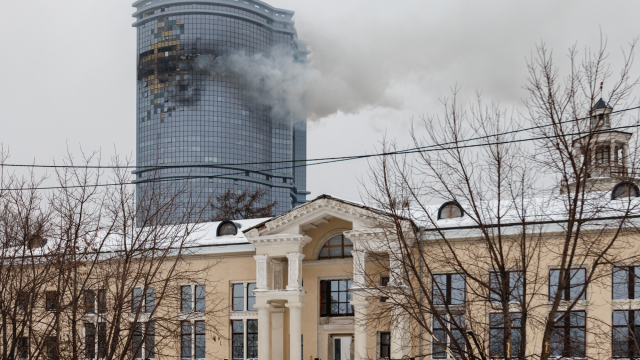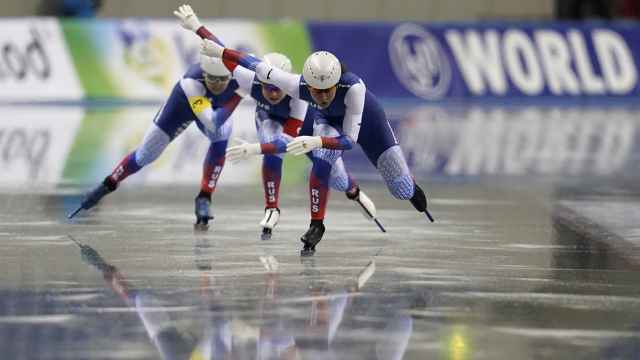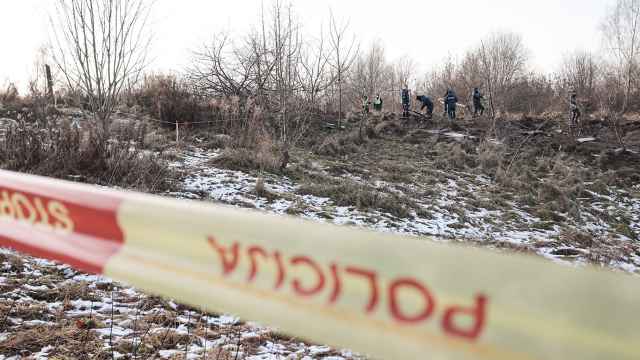Michael McFaul officially relinquished his position as U.S. ambassador to Russia on Wednesday morning, leaving one of the U.S.' most vital diplomatic posts empty amid political upheaval in neighboring Ukraine.
McFaul, known for his active presence on Twitter, wrote goodbyes to Russian users of the microblogging service throughout the morning and tweeted a photo of himself with Sheila Gwaltney, the deputy chief of mission in Moscow, who will head the U.S. Embassy until McFaul's successor is appointed.
A U.S. Embassy representative said there was no official timeline for a replacement to be appointed, and no candidates have been named publicly. But media reports have identified several likely candidates, most of them career diplomats with experience in Eastern Europe.
Kommersant, citing a source close to the U.S. State Department, singled out four candidates currently being considered to head U.S. diplomacy in Moscow, noting that three of them are former ambassadors to Ukraine and hinting that the U.S will be deploying serious diplomatic efforts on Russian soil in favor of Ukraine's prospective turn toward the West.
The first candidate named by the newspaper was John Tefft, who headed the U.S. Embassy in Kiev until July 2013, after having served as ambassador to Georgia and Lithuania. If Tefft were to be appointed as McFaul's successor, he would not be new to the Russian diplomatic scene, having served as the deputy head of the U.S. Embassy in Moscow in the late 1990s.
The two other former ambassadors to Ukraine, Steven Pifer and Carlos Pascual, have also worked on various policy issues in the region. Pifer is currently a senior fellow at the Brookings Institution think tank in Washington, D.C., and heads its Arms Control and Nonproliferation Initiative. Pascual, who has worked on Russian and Eurasian issues for the State Department since the mid-1990s, is the U.S. Special Envoy and Coordinator for International Energy Affairs.
The fourth candidate mentioned named by Kommersant was Rose Gottemoeller, who is assistant U.S. secretary of state for arms control and acted as chief U.S. negotiator of the New START treaty with Russia, which came into effect in February 2011.
Dmitry Trenin, head of the Moscow Carnegie Center, said these candidates fit the mold for U.S. diplomats of having extensive knowledge of the geopolitical terrain.
"The new ambassador will not be arriving in Moscow with any 'baggage' from Ukraine," Trenin said by telephone. "The stated candidates' professional background only shows that in American diplomacy, the individuals who are deemed fit to serve in Russia have diplomatic experience in countries in the region."
McFaul faced harsh attacks from pro-Kremlin lawmakers and media pundits upon his arrival to Russia in early 2012, when an anti-government protest movement was emerging, because of his writings on revolutions in former Soviet republics. But not everyone believes that a former U.S. official with experience in Ukraine like Tefft, Pifer or Pascual would face a similar brand of criticism if appointed to the Moscow embassy post.
"This is a question of perception, especially given the current situation in Ukraine," said Dominique Arel, head of the Chair of Ukrainian Studies at the University of Ottawa, by telephone. "There have never been any issues about pro-Russian biases with former ambassadors to Russia serving in Ukraine. This is a nonissue."
McFaul announced on Feb. 4 that he was leaving Russia for family reasons just more than two years into his tenure as U.S. ambassador to return to his professorship at Stanford University.
In interviews with various media outlets over the last two weeks, during which time he twice visited Sochi for the Olympics to be with the U.S. team, McFaul has defended his efforts to continue the "reset" in U.S.-Russia relations by working toward consensus on issues like the conflict in Syria and arms control while expressing the U.S.' dissatisfaction with various Russian policies like the anti-gay propaganda law.
Despite having been the target of attacks by Russian politicians, McFaul appeared to be popular among many ordinary Russians due to his gregarious nature and responsiveness on social media.
With the situation in Ukraine evolving rapidly and Russia remaining a key player in world diplomacy, the administration of U.S. President Barack Obama is likely to be most concerned with simply finding someone who can help manage strained ties with the Kremlin.
"The new U.S. ambassador to Russia needs to have a solid understanding of the country, to master the Russian language and cannot be allergic to the Russian political establishment," Trenin said.
"The new ambassador will also need to support high-level exchanges between the U.S. and Russia to ensure that the two countries can work constructively on multilateral issues like the current crisis in Ukraine, and the situation in Syria, Iran and Afghanistan."
The Kommersant report said that a decision on McFaul's successor could be made within the "next few days" but that the approval process for the new ambassador could take up to several months given that the candidate must be approved by the U.S. Senate.
Contact the author at g.tetraultfarber@imedia.ru
A Message from The Moscow Times:
Dear readers,
We are facing unprecedented challenges. Russia's Prosecutor General's Office has designated The Moscow Times as an "undesirable" organization, criminalizing our work and putting our staff at risk of prosecution. This follows our earlier unjust labeling as a "foreign agent."
These actions are direct attempts to silence independent journalism in Russia. The authorities claim our work "discredits the decisions of the Russian leadership." We see things differently: we strive to provide accurate, unbiased reporting on Russia.
We, the journalists of The Moscow Times, refuse to be silenced. But to continue our work, we need your help.
Your support, no matter how small, makes a world of difference. If you can, please support us monthly starting from just $2. It's quick to set up, and every contribution makes a significant impact.
By supporting The Moscow Times, you're defending open, independent journalism in the face of repression. Thank you for standing with us.
Remind me later.






